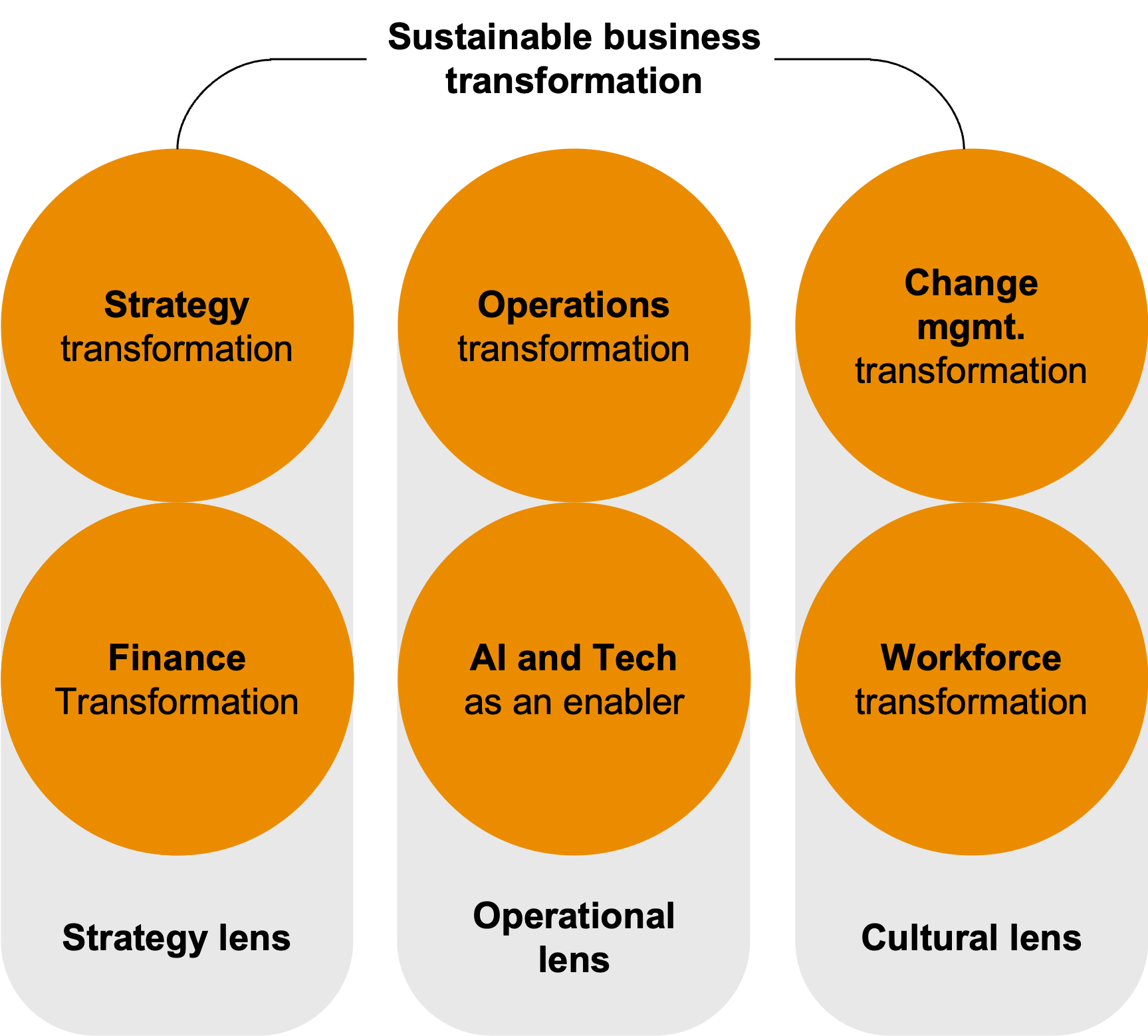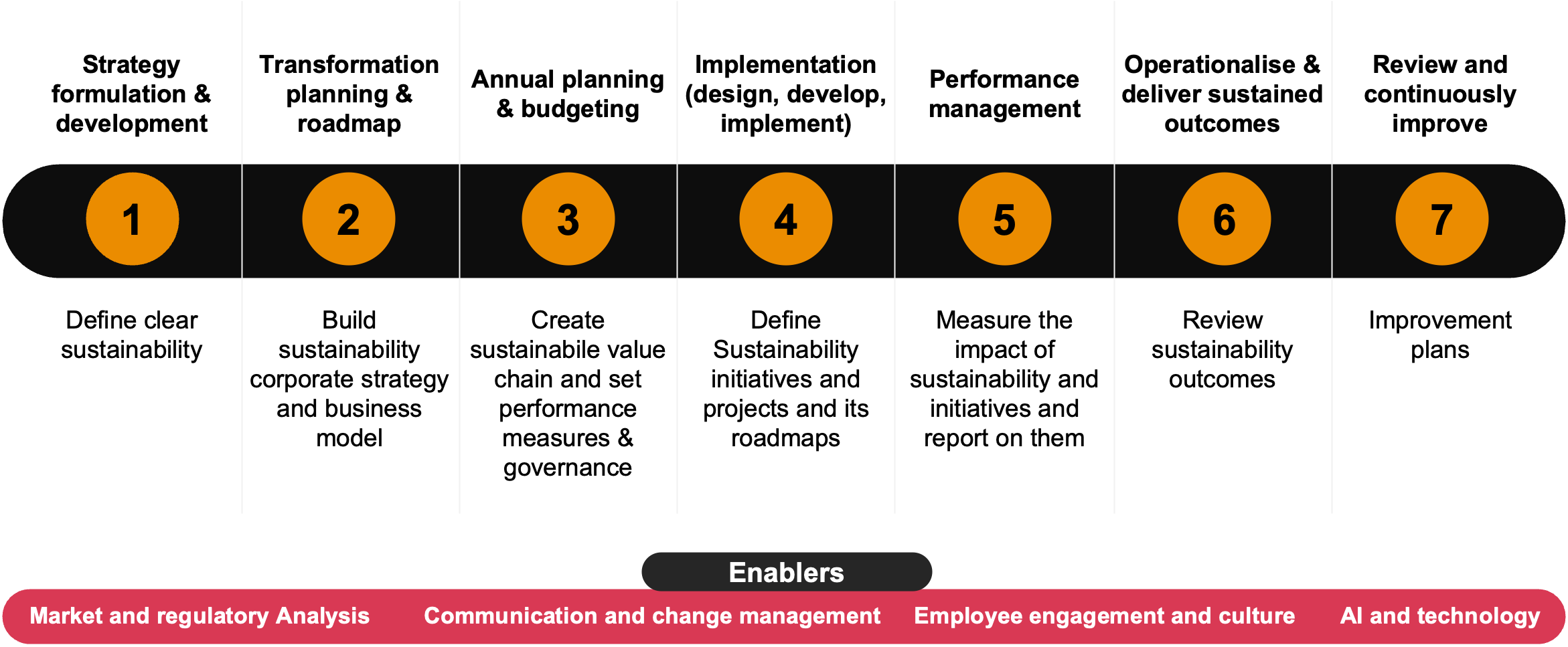What is sustainable business transformation and why is it important?
Sustainability is the practice of meeting current needs and aspirations without depleting resources or harming the environment, ensuring that future generations can meet their own needs. It involves balancing three key dimensions or ‘priorities’ around the environment, society and governance – commonly referred to as ‘ESG’.
Sustainable business transformation is the process by which organisations integrate sustainability into their strategies, operations and governance to achieve long-term goals while driving business value. It enables organisations to reduce their carbon footprint, enhance resource efficiency and foster innovation, positioning them to adapt to market changes and regulatory demands.
Sustainability has become a strategic priority for Middle Eastern businesses
In the Middle East, organisations are increasingly recognising that sustainable practices can accelerate efficiency, reduce costs and enhance brand reputation. Business leaders, in fact, acknowledge the transformative shifts in the region – especially the profound impact of AI, climate change and intensifying competition over new domains of growth – that is making them rethink strategies and build resilience for sustainable growth.
Regional findings of our latest 28th Annual CEO Survey have indicated this urgency to reinvent - 60% of overall Middle East CEOs believe they will need to adapt their businesses in 10 years or less to remain viable. This growing pressure has accelerated the adoption of formal sustainability strategies to ensure long-term business resilience and competitive advantage. It has prompted organisations to reevaluate their value chains, adopting circular economy principles that emphasise waste reduction and resource reuse.
In our latest Sustainability in the Middle East report published in 2024, four in five executives indicated that their companies now have a formal sustainability strategy in place – with more than half saying that this strategy is fully embedded across their organisations.
Meanwhile, government incentives - such as tax benefits for sustainable practices, grants for green innovation, and platforms for public-private partnerships - are accelerating the adoption of sustainable models and driving large-scale initiatives. For example, Masdar City has developed a thriving ecosystem of global organisations working together to create a greener future. Its free zone offers multiple incentives, including 100% foreign ownership, zero percent import tariffs, a reduced tax footprint and access to research and development partnerships. These benefits encourage businesses to invest in green innovations, form strategic partnerships, and integrate sustainability into their long-term growth strategies.
Sustainability is being adopted across various private sector industries in the Middle East. For instance, in the aviation industry, Etihad Airways is enhancing fuel efficiency and exploring sustainable aviation fuels to align with national carbon reduction goals and has joined a UAE-led consortium to research renewable fuels. In real estate, Aldar Properties focuses on energy-efficient designs, achieving a 5 Pearl rating under Abu Dhabi’s Estidama framework – the highest sustainable urban design rating in the UAE capital – showcasing how sustainability can enhance market competitiveness. In the energy sector, Saudi Aramco is investing in carbon capture technologies and diversifying into renewable energy.















